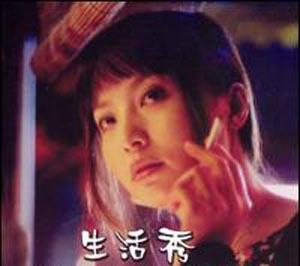Film Review: Life Show
Life is lonely and there is no end of trouble for Lai Shuangyang. Her family is in constant turmoil, and she works late hours, seven days a week in her food market stall on Jiqin Street, where patrons line up all night every night for a plate of her specialty: spicy duck necks. And lately, one patron in particular, Mr. Zhuo Xiong Zhou, has taken a shine to her, as he sits for endless hours at the bar, casting longing looks in her direction, until one evening, he finally musters the courage to speak to her. And it seems that the attraction is mutual.
Once she leaves the nocturnal world of Jiqin alley, Shuangyang must face the reality that is her life. Her younger brother JiuJiu is undergoing treatment for a drug addiction at a dreary rehab facility. Her elder brother is having marital problems with his shrewish wife Jin, who begrudges Shuangyang's business success, but has no conscience in leaving her son Dou'er with Shuangyang for days on end while she's off on her own agenda. There is also the ongoing matter of the family home, which was assigned to a Mr. Liu and his nephew in the Cultural Revolution, and due to a clerical error by a contrary housing ministry officer, Shuangyang and her family are having trouble reclaiming what is rightfully theirs. And as if her life weren't already complicated enough, there's a rumor going around Jiqin Street that all the stalls are going to be torn down to make way for a real estate development project. Ironically, Shuangyang manages to maintain her composure at the eye of the storm.
Based on a novel by Chi Li, and directed by Huo Jianqi, Life Show won the Golden Goblet at the 2002 Shanghai International Film Festival, and a Best Actress Award for Höng Tao at China's Golden Phoenix Awards. In the cinematic world, as films go, Life Show is more understated than most, both in plot and pacing. Yet for all its subtlety, the message is crystal clear. In the immortal words of John Lennon, "Life is what happens to you while you're busy making other plans."
 ThingsAsian
ThingsAsian
















